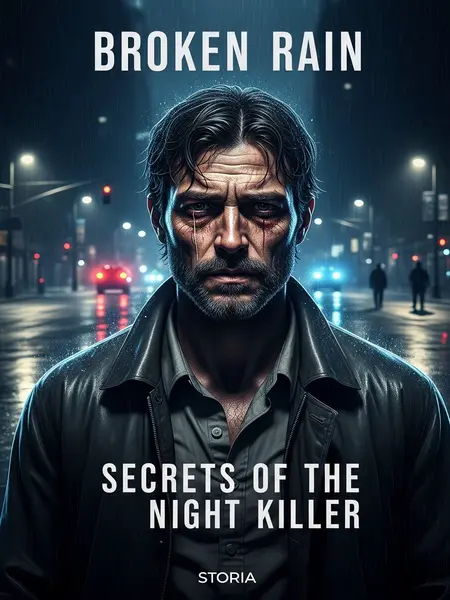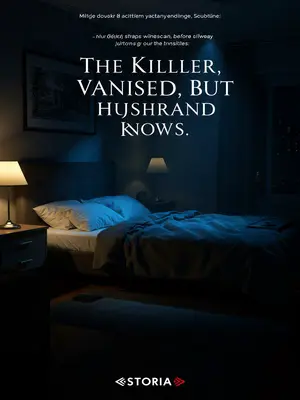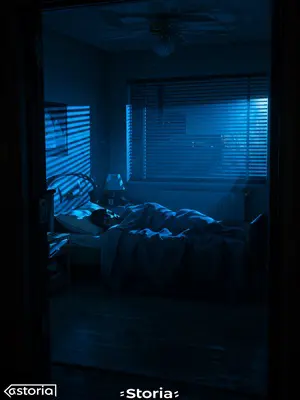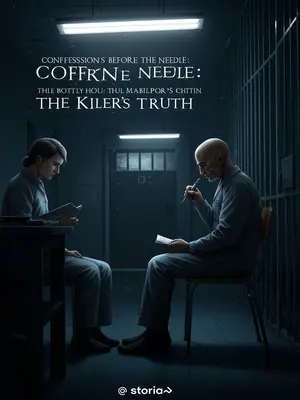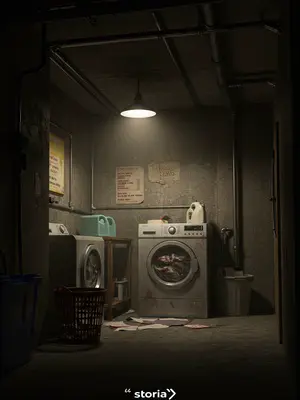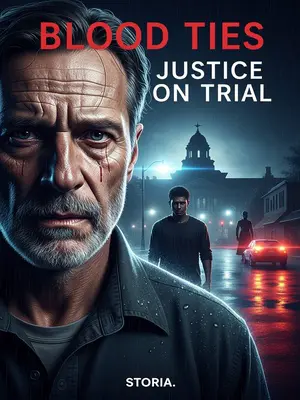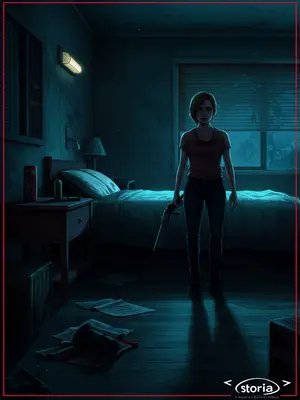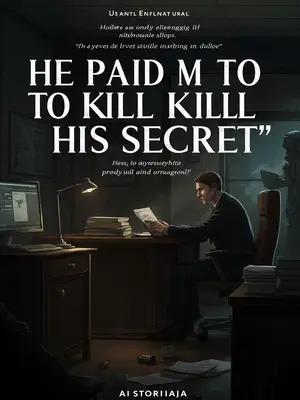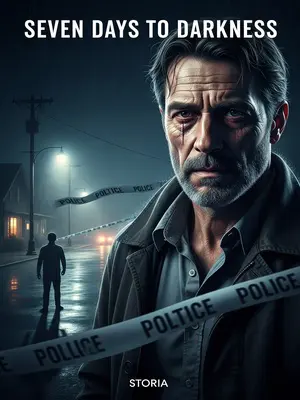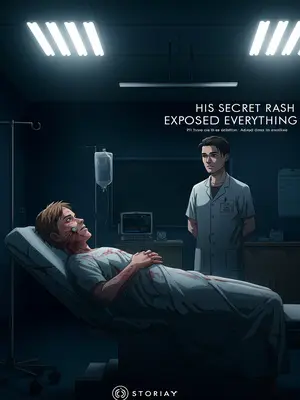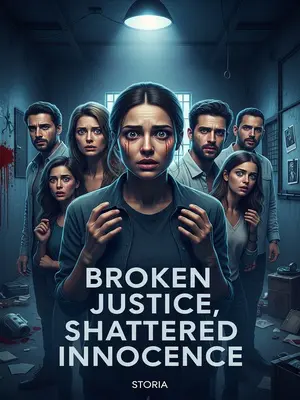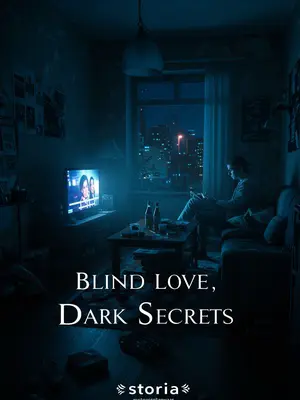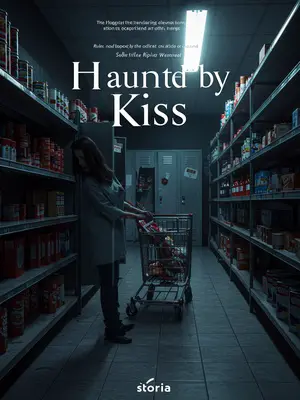Chapter 5: The Witness Returns
That tiny detail cracked the case open. The niece's story brought the past roaring back. It was like a missing puzzle piece falling into place after years of staring at the board. Too neat.
We thought the killer had been silent so long nothing would happen, but a murder occurred on a rainy night days later. I figured the killer must have been watching the first victim’s family. When he heard the niece had returned, afraid the truth would come out, he struck again. He was listening.
The timing was too perfect to be coincidence. I felt a chill—like someone was always watching, waiting for the right moment to strike.
I suggested visiting the victim’s family. The chief thought I hadn’t worked a case in years, so he assigned me an assistant: Madison Grant, a rookie cop, the department’s rising star—highest marks in her class. Madison agreed with my theory and was even more thorough. She investigated everyone who’d contacted the victim’s family over the years. No one suspicious—just old neighbors. Only two stood out: me, who visited often out of guilt; and Chief Rick Dalton, who visited mostly during holidays, bringing gifts from the office.
Madison was all business—clipboard in hand, hair pulled back, eyes that missed nothing. She was already two steps ahead. She had a way of making people talk, even when they didn't want to. I respected her tenacity, even as I felt her gaze lingering on me a little too long.
But Dalton and I visited all the victims’ families, not just this one. Still, there was one detail: the card slipped under my door. If we could find who left it, we’d have our killer. Madison looked up at me and smiled…
Her smile was sly, almost conspiratorial. She was already two steps ahead. "We'll get him," she said. For a moment, I almost believed her.
The victim’s family didn’t have much to add—the killer left almost no evidence. After leaving, Madison kept an eye on the street and nearby cameras. Back at the station, she checked security footage from my building. But no one entered or left before or after I got the card, so we couldn’t ID the killer. Madison thought there were only two possibilities: either the killer had another way in, or they were already inside. But after checking all the residents, almost everyone had an alibi. The few without were elderly and couldn’t have done it.
Madison was relentless, her notes filling entire binders. Color tabs everywhere. She mapped out every possible entrance, every schedule. The only thing missing was a smoking gun.
That night, Madison came to see me alone, her eyes sharp. She said, "Detective novels always say: 'When you eliminate all impossibilities, whatever remains, however improbable, must be the truth.'" Of course she did.
She leaned against my kitchen counter, the hum of my ancient fridge filling the silence. Her confidence was infectious, but I could see the doubt flicker behind her eyes.
I looked at her, then handed her a can of Coke: "Tell me your theory. But I might not buy it—no offense. You know, detective novels are just stories—real life’s different."
She popped the tab, took a long sip, and grinned. "Maybe so, but sometimes stories are the only way to make sense of the mess. Sometimes it’s all we’ve got."
She laughed at how quick I was to dismiss her. I just listened. I braced. Her conclusion:
Madison thought the killer was a nonexistent person—or rather, another personality of someone. This personality and the main one were independent and didn’t share memories. So when the other personality killed, the main one knew nothing. The killer personality used the main one’s blind spots to commit crimes, and the main one’s ignorance was the perfect alibi. Look, even a poly won’t help, since the main one wasn’t lying. And almost all the case details related to the main one, meaning the main one was the killer personality’s eyes. The only key to solving the case was that they shared the same body. So the killer couldn’t let anyone who’d seen him live—hence the latest murder.
She spoke like she was reading from a script, but her hands trembled just a little. The idea was wild, but she laid it out with cold logic. "It’s the only way everything fits," she insisted.
Madison looked at me, her mouth curling into a smile: "Do you think what I said makes sense, Detective Rainy Night?"
She said my old nickname like a challenge. I felt a chill, but I kept my face blank. The room seemed to shrink, the air thick with tension. I didn’t blink.
Madison re-upped her evidence packet, and I became the focus of the investigation. The department’s review matched her theory: almost everything over the years was connected to me. During the victims’ times of death, I had no alibi for any of the cases. Other colleagues sometimes lacked alibis, but not every time. She brought up the note found at my home, which couldn’t be proven to be left by anyone else. So Madison guessed I might have written the note myself as a red herring. The police cleared me because I wasn’t left-handed. But since Madison thought the left-handedness was also a red herring, I was still the most likely suspect. IA sniffed around.
The department went into overdrive. I was called in for interviews, my every move scrutinized. Madison never looked away—she was relentless, but fair. I almost admired her for it.
Madison went further: another reason she thought I was the killer was my lack of interest in women. Since graduation, she’d never heard of me dating; I’d always been alone. She said, "Your dating history is… nonexistent." If a man isn’t interested in women, it matches the killer’s MO. Madison put me in the first victim’s boyfriend’s shoes, and everything made sense. She thought that, for some reason, I had a bad relationship with my girlfriend, leading her to cheat. She humiliated me, so my second personality appeared and killed her. Then I killed her lover. The later murders were out of hatred for women. The profiler’s death was because her theory got too close to the truth. The latest case was also to cover up the truth. Madison believed the trigger for my second personality lay in some of my traits. She looked at me, almost taunting: "Are you... impotent?"
She said it like a dare, her voice low and sharp. I felt the blood rush to my ears. For a second, I wanted to flinch, but I swallowed it down. She wanted a flinch. Madison was pushing, hoping I'd crack.
I watched as Madison angrily smashed her coffee mug, her eyes fierce. But the next second, I was calm again and sighed: "I admit your logic is sharp, but it’s not correct. I’ve shown you everything you wanted to see. Before you find real evidence, stop guessing. This isn’t police work."
The mug shards glittered on my kitchen floor. Crunch underfoot. I kept my tone even, but inside, I was rattled. Madison stared at me, searching for something, but I gave her nothing.
Madison treated me as her main suspect, but she couldn’t pin it on me. Her logic was solid, but she had no proof. But Madison made one last effort and told me a story: I let her talk.
She leaned forward, her voice dropping to a whisper. "Let me tell you what I saw."
Nine years ago, on a stormy night, she saw a woman depositing money at an ATM. The woman was slow, repeating the process five times, five deposits totaling about fifteen grand. Afterward, the woman called someone, saying she’d gathered enough money. Madison remembered it so well because of what happened next: as the woman turned the corner, a man in a yellow raincoat grabbed her and stabbed her in the neck. He dragged her into the alley. As he did, his hood fell off, and she saw his face. She was just a high schooler then and hid in the ATM booth, terrified. The man didn’t notice her, so she escaped. She might have been the only witness. But out of fear, she never called the police, especially after the dismemberment case hit the news. The guilt haunted her as she grew up, and when she joined the police academy, she felt a little better. She thought she could make up for her cowardice by working the case. But the more she learned, the more shocked she became. The Rainy Night murders were almost perfect crimes—time buried the truth. Even with a suspect now, there was almost no evidence. Even nine years could turn these tragedies into urban legends. But in real law, it was all useless. The killer’s brilliance was that he never destroyed evidence—he just hid himself. Only after the latest case and meeting me did she realize the face she saw that night was mine. She never forgot the hood.
Her voice trembled at the memory. I could see the shame, the years of regret etched on her face. She clutched a card in her hand, her knuckles white.
Madison took a card from her wallet, wrapped in brittle paper. She said it was the victim’s lost debit card, and the wrapping was a letter. The letter said…
She handed it to me with shaking fingers. The card was faded, the letter creased and stained. I read the words, feeling the weight of years pressing down.
It was simple: she’d gathered some money to use with her lover. She knew the man’s situation and wanted to marry him—to make it official. Later investigations showed the so-called lover wasn’t a lover, but the first victim’s brother. Most of the money in the card was from her brother, but no one ever used it.
